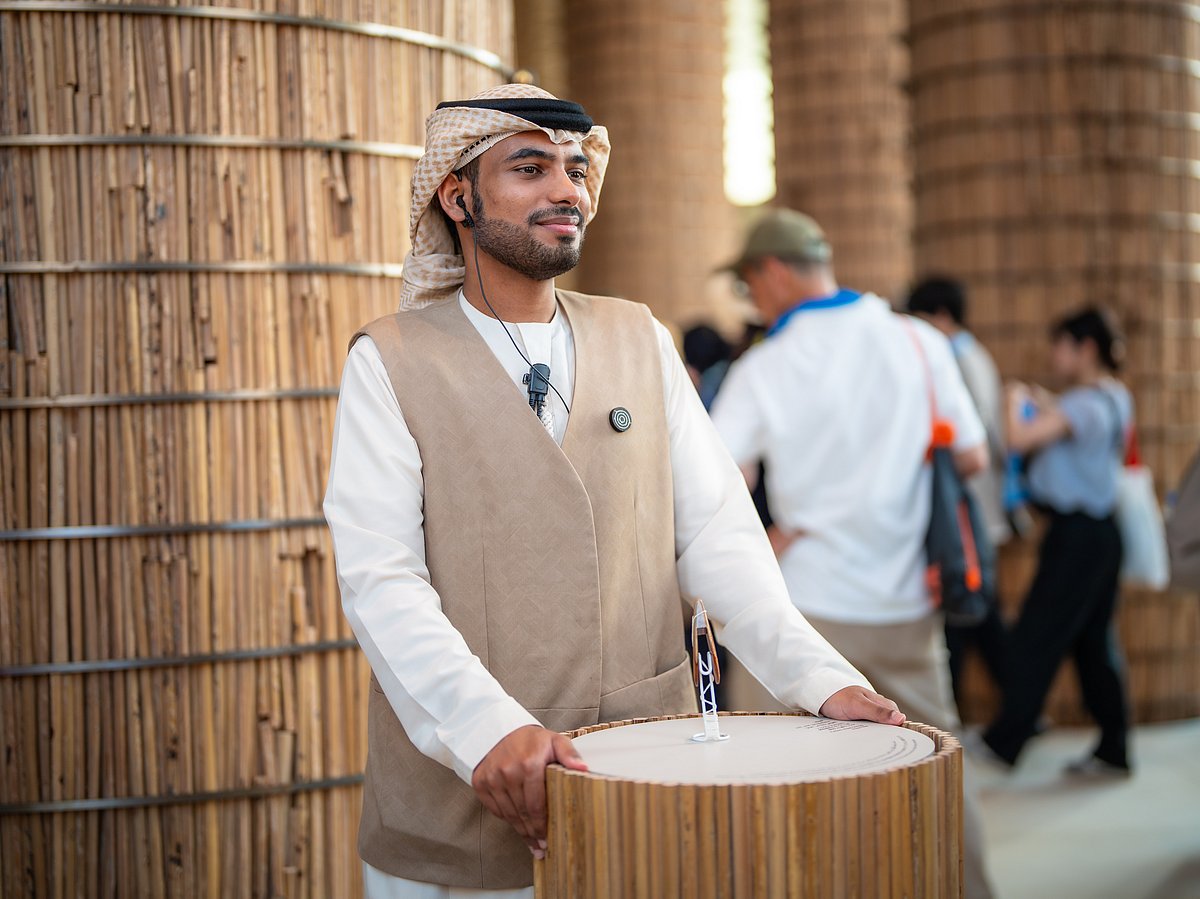‘Are you a king?’ UAE Youth Ambassador busts myths at Japan’s Expo 2025 – watch
Moosa Al Zaabi bridges cultures and debunks stereotypes in Osaka

Dubai: “Are you a king?” That’s one of the many surprising questions Moosa Al Zaabi, the Emirati Youth Ambassador in the UAE Pavilion at Expo 2025 Osaka, often hears from curious visitors, who are mostly Japanese. As the first point of contact for thousands entering the pavilion, Al Zaabi embraces the role of cultural guide – correcting misconceptions and proudly showcasing the UAE’s heritage.
“Being a representative of your country is a huge responsibility, but also a tremendous privilege,” he said. “You’re the first face people see when they interact with your country. It’s an opportunity to share our culture, history and identity.”
‘Are you a king?’
Among the most frequent questions are those about Emirati attire. Some visitors ask if he is royalty because of his traditional attire. Others mistake his ceremonial dagger, the khanjar, for a weapon.
“People often ask, ‘Oh! Are you a king?’ or ‘Why do you wear this? Is it like a crown?’” Al Zaabi said, referring to the Emirati headgear – Ghutra.
Watch the video below
Style, not status
The black cord (agal) that secures the ghutra often draws attention too.
“They ask if they can try it on. I explain it’s like wearing a formal suit or hat, more fashion and cultural than hierarchical. The colour choice has no social meaning, just style or weather.”
Visitors are amazed to learn about the Emirati national dress.
“They often think our attire is heavy and uncomfortable in the heat. I explain it’s actually loose, airy, and practical for summer.”
Khanjar questions
While explaining the ceremonial dagger khanjar, visitors become even more curious.
“Everyone who walks in is like: ‘Oh! Does everyone have this? Do you use it for fighting?’. I am like: ‘No, not really’.”
Among other misconceptions are notions like the UAE being only Dubai and Abu Dhabi, and other emirates being independent countries with their own currency or language.
“As someone living in the UAE, I never thought people would think this way, but after working at the Expo, I now know these misconceptions exist. And part of my role is correcting them.”
Bridging cultural gap
Fluent in Japanese – a skill he picked up during high school thanks to an interest in anime and the rhythmic nature of the language – Al Zaabi communicates comfortably with local visitors. “I enrolled in a three-year Japanese programme,” he said, referring to the course in learning the language.
Scent of hospitality
He’s also had to adapt his messaging for cultural clarity.
“For example, we offer fragrance as part of hospitality. In Japan, that seems unusual. I have to explain it’s not because they don’t smell nice, but because people in the UAE and most Arab countries like nice smells. So, offering fragrance is part of welcoming them into our homes.”
Bonding over shared words
Cultural exchange goes both ways. Japanese youth ambassadors often teach Al Zaabi new phrases, while he teaches them Arabic. One of his fondest moments was when a Japanese colleague sang an Arabic lullaby. “It was a lovely cultural exchange.”
Every day brings unique interactions.
“A young girl once took a photo with me, then returned minutes later with a printed copy – she had a pocket printer. It was very unexpected.”
Mission continues
Al Zaabi also hosts school groups, introducing young Japanese students to Emirati life. “Once, while describing Abu Dhabi’s marine life, a child kept saying ‘cows’. I later realised he meant dugongs – sea cows. That moment taught me that I needed to choose words carefully when explaining.”
As Expo 2025 continues, Al Zaabi remains committed to his mission: “After this, I’ll return to the UAE. But I hope to keep sharing the UAE’s culture, history, and traditions wherever I go.”
Sign up for the Daily Briefing
Get the latest news and updates straight to your inbox
Network Links
GN StoreDownload our app
© Al Nisr Publishing LLC 2026. All rights reserved.